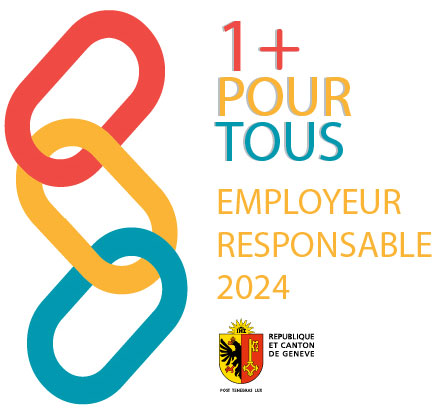- Economic Responsibility
- Environmental Responsibility
- Social and Humanitarian Responsibility
- Medical Responsibility
Economic Responsibility
Keyword: Economic Viability
HUG manages an annual budget of 1.9 billion Swiss francs. This figure is a measure of the financial responsibility it bears.
Efficient and responsible management involves: containing costs; using the entrusted resources sparingly; aiming for efficiency in services rendered.
Establishing processes on a care level (access to ER, technical facilities, development of clinical pathways) and new procedures (e.g. control of blood bags) are the guarantors of a well thought-out and well implemented economic viability.
Economic responsibility is inseparable from care quality and safety.
Various indicators are used to monitor and measure economic viability. Institutional dashboards include nearly 200 indicators grouped into four areas: patient; services and processes; organization, human resources and budget; finances.
Environmental Responsibility
Keyword: Green
HUG's commitment to respectful environmental management is expressed in 11 action areas, all of which are tasks set by HUG.
-
Environmental Assessment: HUG is the first European hospital to carry out an environmental assessment across an entire institution; this assessment is also an argument that supports measures to promote savings among staff and benefit from external visibility.
-
Mobility Plan: promote public transportation, promote the use of P+R, promote the use of bicycles and electric bikes, develop carpooling, etc.
-
Local Manager: implement measures for awareness and changes in food consumption patterns to reduce the environmental impact. Staff awareness and encouraging environmentally responsible behavior, supporting local business in the area of food.
-
Packaging: implement measures to reduce the amount of packaging, or at least to recycle or reuse it.
See the 2023 Sustainability Report (FR)
See also the booklet in French, in English and in German
Social and Humanitarian Responsibility
Keyword: Solidarity
Beyond the services guaranteed within LAMal, HUG's mission is to guarantee care quality for all.
Here, HUG is involved in general interest missions. Moreover, they are involved, in an exemplary way, in humanitarian medicine actions.
Some general interest missions emanate from Geneva's legal specificities; a law on emergency vehicles delegates this vital mission to HUG. Being at everyone's service also means offering consultations to patients without health insurance. It is admitting and understanding patients arriving from elsewhere. The Migrant Health Program is devoted to this, with assistance from an interpreting service. Family planning is another illustration of the diversity in the profile of patients treated by HUG. HUG never forgets that it is as much a local hospital - the only public health establishment in the canton - as an academic institution.
On a humanitarian level, it is not only the institution, but also often care providers in their own right who engage in solidarity missions. Each year, senior physicians at HUG give back a part of their fees to a private humanitarian fund. The outcome?
HUG has an tropical and humanitarian medical service, as well as a Committee on Humanitarian Affairs, created in 1999 to facilitate, coordinate and develop cooperation projects. This committee studies projects presented by a HUG staff member and submits a notice to the equalization fund committee that decides on funding.
Furthermore, in partnership with the University of Geneva Faculty of Medicine and various international organizations involved in global health, HUG created the Geneva Health Forum, whose sixth edition, which was held in April 2016, was attended by a thousand participants from 65 countries. Each time, this forum has been a unique opportunity to bring together experts, policy makers, members of civil society and field workers.
See the website of the Tropical and Humanitarian Medicine Division
Access the website for the Geneva Health Forum
Medical Responsibility
Keyword: Future
In 2023, the HUG trained 913 doctors, 242 heads of clinic in FMH training, 1,228 medical trainees, 1,332 healthcare professional trainees and 213 apprentices. Preparing medical reports is one of the key missions for the future. Prior to this, when many care providers at the forefront of their skills reach the end of their career, it is necessary to optimize the recruitment of new specialists.
Meanwhile, HUG invests in talent development in the institution. An Innovation Day and Research Day have been established for this purpose each year with great success.
Find out more about Innovation Day
Find out more about Research Day
